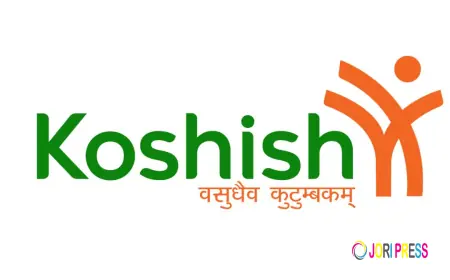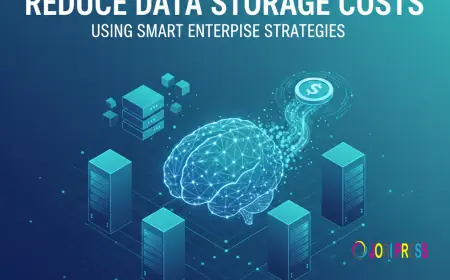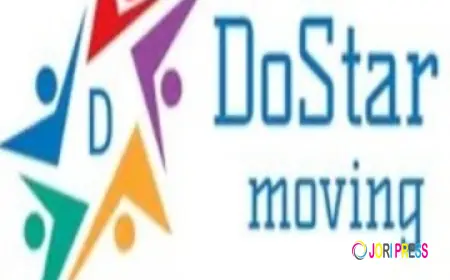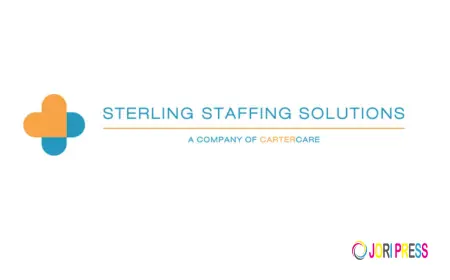How Rollups Are Reshaping DApp Development
Discover how rollups are transforming scalability, security, and user experience in decentralized applications. Learn how a leading dapp development company leverages rollups to deliver next-gen dapp development services in 2025.

Decentralized applications, or DApps, have become a central pillar of the Web3 revolution. From DeFi protocols and NFT marketplaces to decentralized social platforms, these applications are shaping how users interact with blockchain technology. However, as blockchain networks grow, scalability challenges remain one of the biggest barriers to widespread adoption. Transaction costs, latency, and congestion limit what developers can build and what users can afford to use. This is where rollups have emerged as a groundbreaking solution. By processing transactions off-chain and securing them on-chain, rollups are enabling new levels of scalability, security, and efficiency. For any dapp development company or team offering dapp development services, understanding rollups is now essential to delivering next-generation decentralized solutions.
The Scalability Problem in Blockchain and DApps
Ethereum, the most widely used platform for DApp development, has long faced scalability challenges. While it offers unmatched security and decentralization, its limited throughput restricts the growth of complex decentralized ecosystems. During periods of high activity, gas fees spike, sometimes making transactions cost more than the value being transferred. For developers, this creates friction in adoption, as end users expect smooth, low-cost interactions comparable to traditional applications.
Without addressing scalability, the vision of decentralized finance, social applications, gaming, and enterprise use cases cannot fully materialize. This is why rollups are seen as a major innovation in reshaping the entire DApp development landscape.
What Are Rollups?
Rollups are a Layer-2 scaling solution that allows most computation and storage to occur off-chain while still posting transaction data back to the Layer-1 blockchain. This ensures security and decentralization are preserved while increasing throughput and lowering costs.
There are two main types of rollups:
Optimistic Rollups
Optimistic rollups assume transactions are valid by default and only check them when challenged. Fraud proofs are used to catch invalid transactions, making them efficient but requiring some dispute resolution mechanisms.
Zero-Knowledge (ZK) Rollups
ZK rollups use cryptographic proofs, specifically zero-knowledge proofs, to validate transactions. They provide faster finality and higher security guarantees since validity is mathematically proven. ZK rollups are especially promising for complex DApps due to their efficiency and scalability.
Both approaches have their strengths, and many DApps are already migrating to rollup-based ecosystems to achieve greater usability.
Why Rollups Are Critical for DApp Developers
For DApp developers, building on Layer-1 alone is no longer sufficient. Users demand seamless experiences with low costs and fast confirmations. Rollups provide exactly that. By reducing gas fees significantly, they allow developers to design DApps that are more inclusive, opening access to users who were previously priced out of Ethereum.
A dapp development company adopting rollup technology can deliver solutions that scale without compromising decentralization. Likewise, dapp development services can integrate rollups to give businesses and startups an edge in deploying cost-efficient blockchain applications.
Rollups in Action: Real-World Use Cases
Rollups are already powering some of the most innovative DApps in 2025.
DeFi Platforms
Rollups are reducing transaction costs in decentralized exchanges, lending protocols, and yield farming platforms. Users can swap assets or take loans without worrying about excessive gas fees.
GameFi and Metaverse Projects
Gaming applications demand high transaction throughput for asset transfers, NFT minting, and in-game economies. Rollups make this possible while keeping interactions instant and affordable.
NFT Marketplaces
NFT minting and trading have been bottlenecked by high fees on Layer-1. Rollups allow marketplaces to offer cheaper minting and faster transactions, attracting more creators and collectors.
Enterprise DApps
Businesses exploring blockchain integration rely on dapp development services that can deliver scalable solutions. Rollups make it feasible to create enterprise-grade applications for supply chains, identity management, and financial systems without being hindered by blockchain limitations.
Rollups and Developer Ecosystem Evolution
The rise of rollups is reshaping how developers build and deploy DApps. Major platforms like Arbitrum, Optimism, zkSync, and Starknet are leading the way, each offering unique benefits to developers.
With rollups, developers can:
-
Write smart contracts in familiar languages like Solidity.
-
Deploy DApps with near-instant transaction finality.
-
Onboard more users due to lower fees.
-
Build applications that handle high transaction volumes.
A dapp development company leveraging these ecosystems is better positioned to create competitive, future-proof applications.
Rollups and User Experience
For users, rollups represent a turning point in DApp adoption. Until now, high fees and slow confirmations discouraged mainstream adoption. By enabling faster and cheaper transactions, rollups make decentralized platforms as smooth as Web2 applications. This is particularly important in consumer-facing industries like gaming, marketplaces, and social media DApps.
Security Considerations with Rollups
While rollups solve scalability, developers must also ensure robust security. Optimistic rollups require monitoring for fraud proofs, and ZK rollups require sophisticated cryptography. A trusted dapp development company can help businesses navigate these complexities, offering dapp development services that ensure both performance and security.
The Future of Rollups in DApp Development
Rollups are not a short-term solution but a fundamental piece of Ethereum and other blockchain scaling strategies. They are set to become the default environment for most DApps. As Ethereum progresses with Danksharding and proto-danksharding (EIP-4844), rollups will become even cheaper and more efficient.
For developers and businesses, this means that rollup integration is no longer optional—it is the foundation for success in the decentralized economy of 2025 and beyond.
Conclusion
Rollups are transforming the way decentralized applications are built, deployed, and experienced. By addressing scalability while preserving security and decentralization, they enable the creation of next-generation DApps that are fast, cost-effective, and user-friendly. For any dapp development company or provider of dapp development services, mastering rollup integration is critical to staying competitive in a rapidly evolving Web3 landscape.
The future of DApp development will be shaped by how effectively developers harness the power of rollups, bridging the gap between blockchain innovation and mainstream usability.
FAQs
Q1: How do rollups improve DApp scalability?
Rollups process transactions off-chain and only post essential data to the Layer-1 blockchain, which reduces congestion and improves throughput.
Q2: What is the difference between optimistic rollups and ZK rollups?
Optimistic rollups assume validity and rely on fraud proofs, while ZK rollups use cryptographic proofs to ensure validity instantly.
Q3: Can rollups lower gas fees for users?
Yes, rollups dramatically reduce gas costs, making DApps more affordable and inclusive for a global user base.
Q4: Are rollups secure for enterprise DApp solutions?
Yes, rollups inherit security from Layer-1 blockchains while adding scalability, making them suitable for enterprise-grade applications.
Q5: Which rollup platforms are most popular in 2025?
Leading platforms include Arbitrum, Optimism, zkSync, and Starknet, each offering unique benefits for developers and businesses.
What's Your Reaction?
 Like
0
Like
0
 Dislike
0
Dislike
0
 Love
0
Love
0
 Funny
0
Funny
0
 Angry
0
Angry
0
 Sad
0
Sad
0
 Wow
0
Wow
0

















































